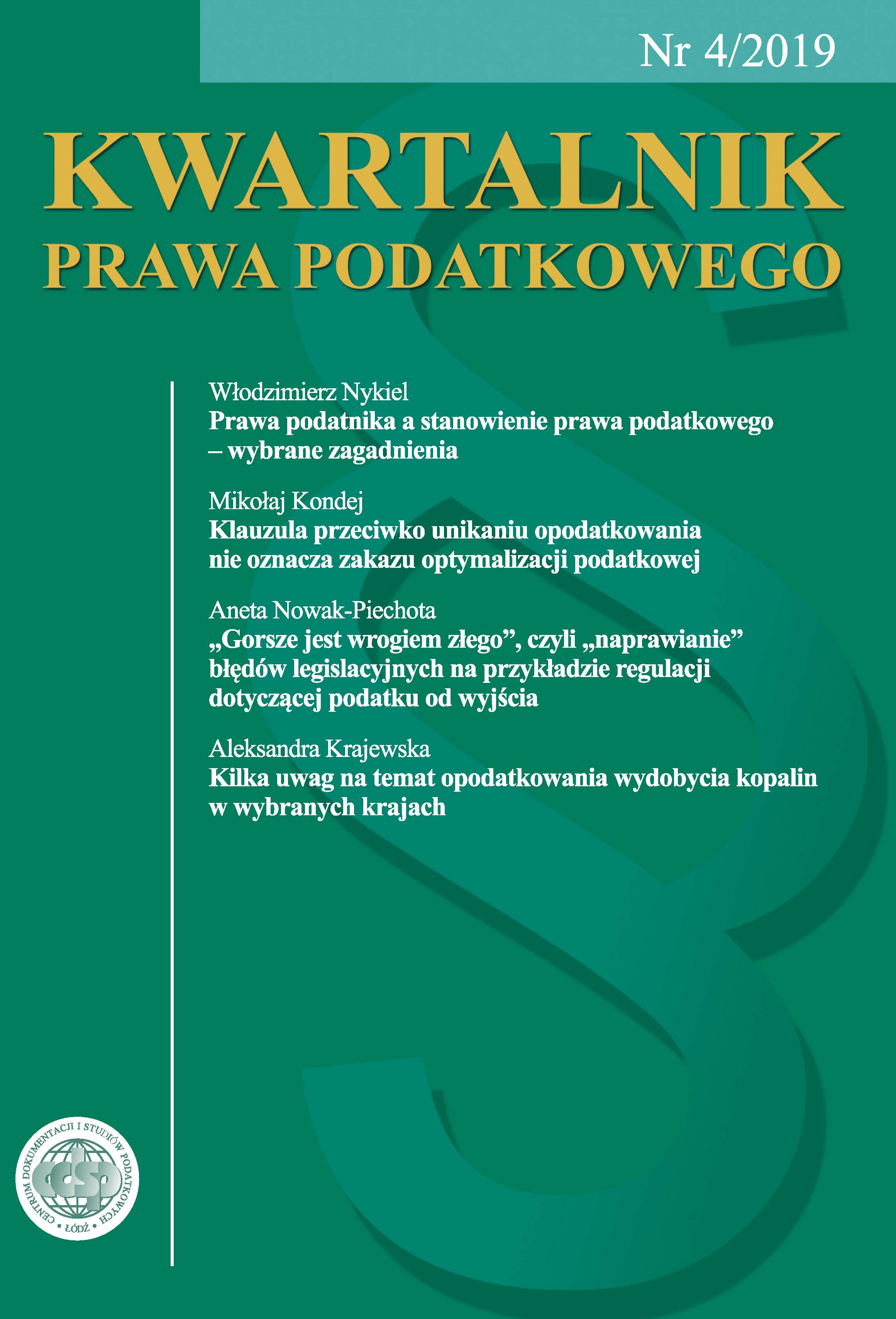Klauzula przeciwko unikaniu opodatkowania nie oznacza zakazu optymalizacji podatkowej. Glosa krytyczna do odmowy wydania opinii zabezpieczającej z dnia 28 maja 2020 r. DKP3.8011.8.2019
General anti-avoidance rule (GAAR) does not mean prohibition of tax optimization. Adverse gloss to decision refusing issuing protective opinion of 28 May 2020 (DKP3.8011.8.2019)
Author(s): Mikołaj KondejSubject(s): Law, Constitution, Jurisprudence
Published by: Wydawnictwo Uniwersytetu Łódzkiego
Keywords: general anti-avoidance rule; GAAR; Article 119 of the tax ordinance; tax advantage that defeats the object or purpose of the law; non-genuine arrangement; related parties
Summary/Abstract: On 28 May 2020 the Head of Polish Revenue Administration refused to issue protective opinion under general anti-avoidance rule (GAAR) regarding taxpayer right to recognize taxable loss on sale of shares in a subsidiary. The transaction took part between related parties. The loss was result of a significant drop in market value of the subsidiary shares due to business fail of this entity. The tax authority argued that, in given circumstances, recognition of loss on sale remains contrary to the object and purpose of the tax law due to the fact that intra-group transactions should not be utilized to manipulate taxable revenue. In the article the author challenges correctness of such argumentation. He claims that recognition of actual economical loss, as a result of sale of shares to related party, remains in line with the aim and spirit of the tax law.
Journal: Kwartalnik Prawa Podatkowego
- Issue Year: 2019
- Issue No: 4
- Page Range: 21-37
- Page Count: 17
- Language: Polish

